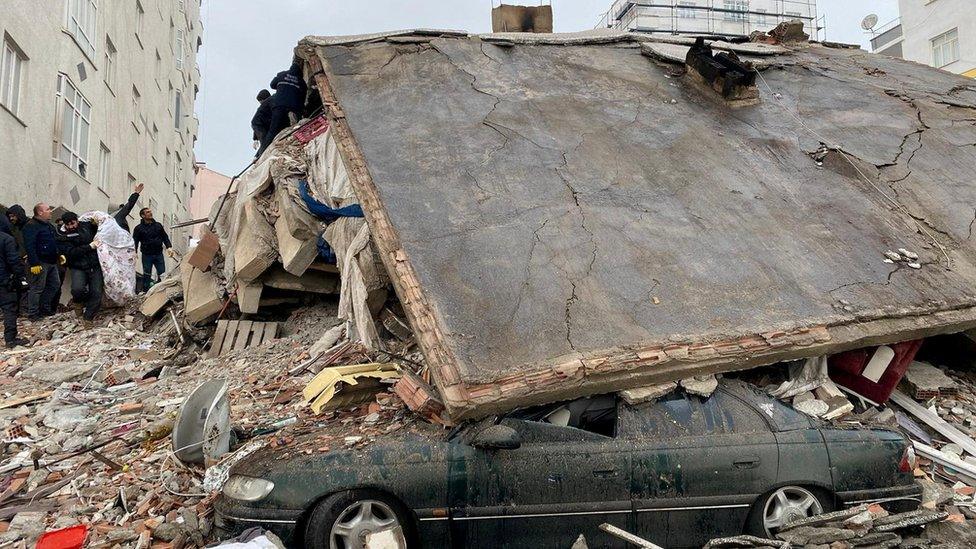Turkey earthquake: Roman-era castle destroyed by quake
- Published
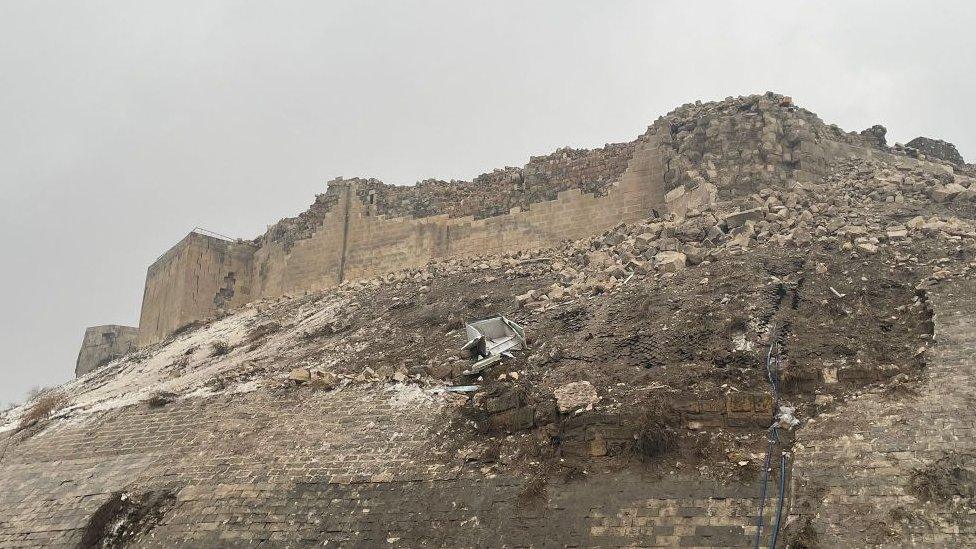
Gaziantep Castle was built by the Romans in the 2nd and 3rd centuries before becoming a museum
The devastation wrought by Monday's deadly earthquake in south-eastern Turkey included the almost total destruction of a 2,000-year-old castle built during the Roman Empire.
Footage obtained by the BBC showed severe damage at the hilltop Gaziantep Castle, in the centre of the city.
It was built in the 2nd and 3rd Centuries, before becoming a museum.
Two plus-7 magnitude quakes hit the region on Monday, killing more than 2,000 people in Turkey and Syria.
A video obtained and verified by the BBC showed Gaziantep Castle in ruins, with many of its walls collapsed and broken into pieces on the streets below.
Some of the fortifications in the "east, south and south-east" of the castle had been destroyed by the earthquake, Turkish state-run news agency Anadolu has been reported as saying, adding that "debris was scattered on the road".
Parts of the nearby Sirvani Mosque were also destroyed, reports said.
The castle was built by the Romans during the 2nd and 3rd centuries, then strengthened and expanded by the Byzantine emperor Justinian I in the 6th Century.
It also saw changes made during the reign of the Ayyubids in the 12th and 13th Centuries, as well as the Ottoman Empire, and played an important role during Turkey's war of independence of the early 20th Century.
Until recently it served as the Gaziantep Defence and Heroism Panoramic Museum.
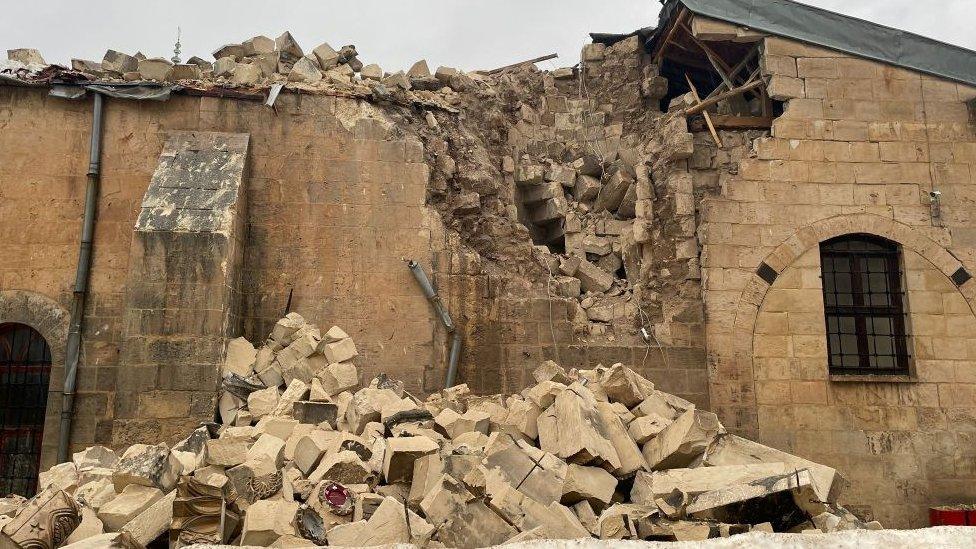
Hours after the first earthquake, a second quake, with a magnitude of 7.5, hit the Elbistan district of Kahramanmaras province.
Seismologists have said the first earthquake was one of the largest ever recorded in Turkey.
Hundreds of buildings have collapsed in both Turkey and Syria, with rescuers working to save people trapped beneath the rubble.
Shocking images show buildings that were four or five storeys high flattened, roads destroyed and mountains of rubble.
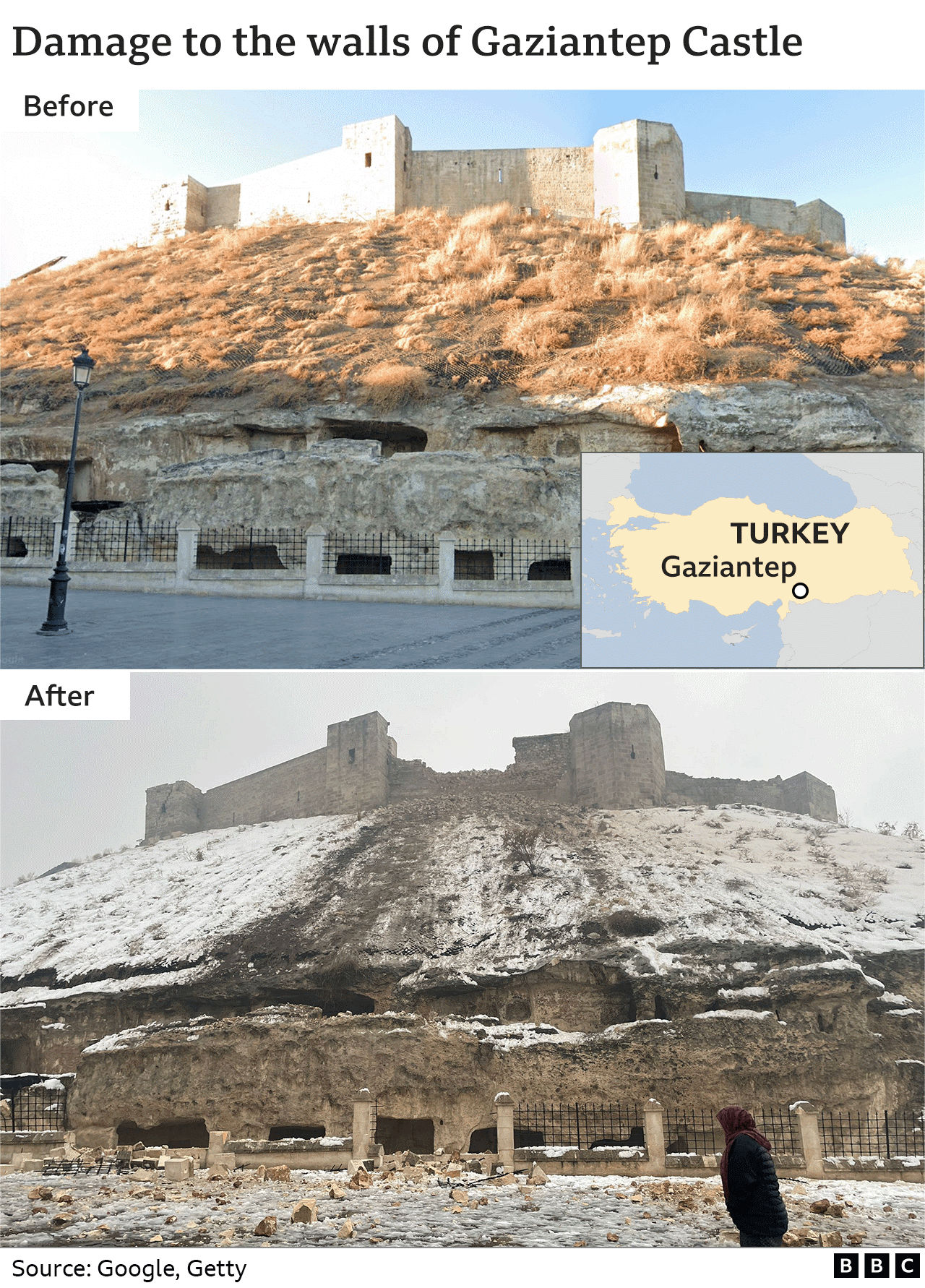
Related topics
- Published6 February 2023
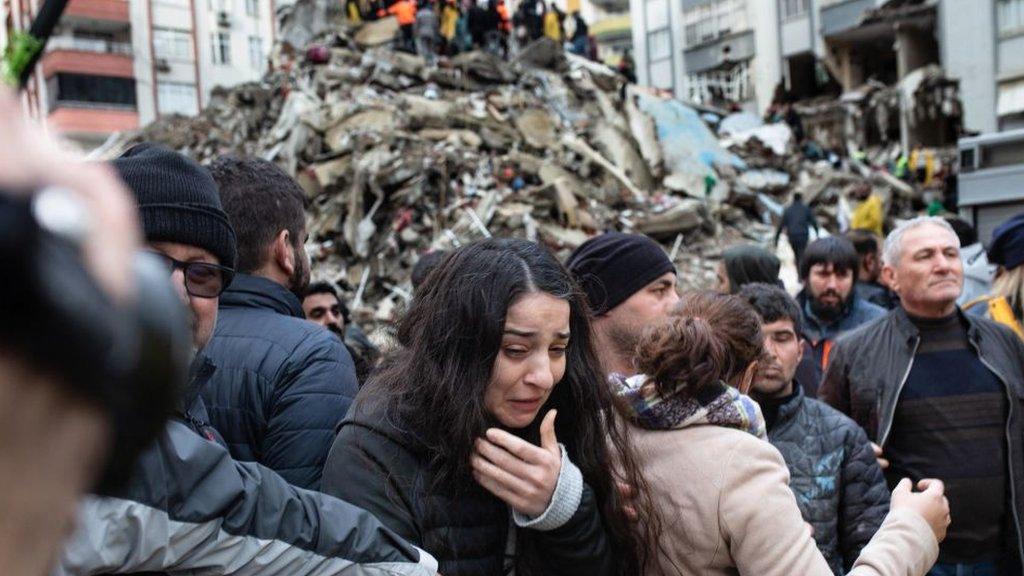
- Published6 February 2023
